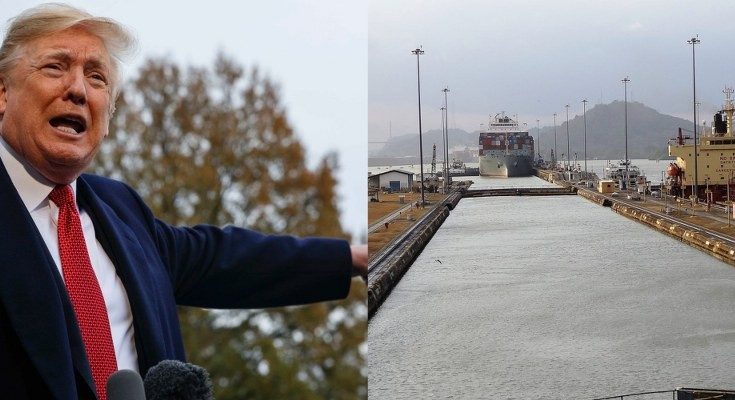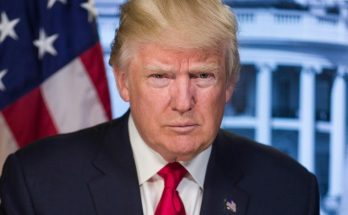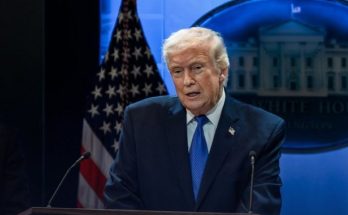#Panama#PanamaCanal#China#US#DonaldTrump
Washington DC/IBNS-CMEDIA: US President-elect Donald Trump on Saturday slammed Panama, accusing it of charging excessive rates for the use of the Panama Canal, and added that he would demand the country to transfer the strategic waterway to the US if the Central American nation did not manage it in an “acceptable” way.
In an evening post on Truth Social, Trump indicated that the canal should not be managed by China and warned that he couldn’t allow the canal to fall into the “wrong hands”
It is not common for a US leader to set pressure on a sovereign nation to hand over a part of territory.
Trump’s aggressive approach to Panama’s alleged mismanagement of the canal, emphasises the shift in US diplomacy under him.
Trump’s statement also highlights he will not shy away from threatening and using strong rhetoric even in his dealings with US allies, especially in situations unacceptable to the US.
The Panama Canal, a strategic waterway largely built and managed by the US for decades, was fully transferred to Panama in 1999 after a period of joint control.
“The fees being charged by Panama are ridiculous, especially knowing the extraordinary generosity that has been bestowed to Panama by the US,” Trump stated in his post.
“It was not given for the benefit of others, but merely as a token of cooperation with us and Panama. If the principles, both moral and legal, of this magnanimous gesture of giving are not followed, then we will demand that the Panama Canal be returned to us, in full, and without question.”
Is Trump’s concern real?
Stretching approximately 82 kms, the Panama Canal, a vital maritime shortcut connecting the Atlantic and Pacific Oceans, significantly reduces travel time for ships, eliminating the lengthy and hazardous voyage around South America’s Cape Horn.
Approximately 5% of global trade transits through the canal, underscoring its importance in international commerce. For the United States, the canal is particularly crucial, facilitating efficient movement of goods and military assets between coasts, thereby enhancing both economic interests and national security.
China has increasingly sought to expand its influence over critical global trade routes, including the Panama Canal, as part of its broader geopolitical and economic ambitions.
In recent years, China’s growing presence in Panama has raised concerns among U.S. policymakers. Since establishing diplomatic relations with Panama in 2017, China has invested in various infrastructure projects near the canal, including ports and energy facilities.
For instance, Chinese companies have been involved in constructing a natural gas-fired electricity generation facility and have shown interest in port operations on both ends of the canal.
Trump’s comments stem from this growing Chinese influence in Panama as the Central American nation went as far as severing ties with Taiwan to establish full diplomatic ties with China.
However, the Panama Canal continues to be fully owned and administered by the Panama Canal Authority (ACP).
For the United States, the canal holds immense strategic and economic importance. As a major player in international trade, the US relies on the Panama Canal for the swift transport of goods, particularly between its East and West Coasts and trading partners in Asia.
For the wider region, the canal serves as a vital economic engine, driving trade and fostering connectivity, while its efficient operation is crucial for maintaining stability and growth in global shipping networks.





